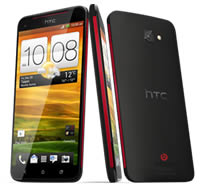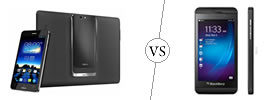Difference between HTC Butterfly and HTC One
Key difference: The HTC Butterfly is a high-end phone by the HTC Corporation. The HTC Butterfly is sold in four variants: Droid DNA; J Butterfly HTL21; Butterfly X920d; and Butterfly X920e. They are all powered on a Quad-core 1.5 GHz Krait processor. The HTC Droid has the Quadcomm MDM615m, while the Butterfly variants have the Qualcomm APQ8064 chipset. They all have 2 GB of RAM. The HTC one comes with Android v4.1.2 Jelly Bean that is upgradable to v4.2.2. It includes a 1.7 GHz quad-core Snapdragon 600 processor, Adreno 320 GPU and 2 GB DDR2.
 The HTC Butterfly is a high-end phone by the HTC Corporation. The phone has been quite popular all over the world; however, most people don’t know exactly how popular the phone has actually been. This is mainly because not many people know that the HTC Butterfly and HTC Droid DNA is actually pretty much the same phone, with only a few differences. The differences are only there to make the phone more regional specific.
The HTC Butterfly is a high-end phone by the HTC Corporation. The phone has been quite popular all over the world; however, most people don’t know exactly how popular the phone has actually been. This is mainly because not many people know that the HTC Butterfly and HTC Droid DNA is actually pretty much the same phone, with only a few differences. The differences are only there to make the phone more regional specific.
The HTC Butterfly is sold in four variants: Droid DNA in the United States on the Verizob Network; J Butterfly HTL21 in Japan on KDDI's au network; Butterfly X920d in Taiwan, South East Asia and India; and Butterfly X920e in China and Russia.
All the variants have most of the same features. They are all powered on a Quad-core 1.5 GHz Krait processor. The HTC Droid has the Quadcomm MDM615m, while the Butterfly variants have the Qualcomm APQ8064 chipset. They all have 2 GB of RAM and Adreno 320 graphics processor. They all have an 8 MP primary camera and a 2.1 MP secondary front facing camera. The display is a 5 inch Super LCD3 capacitive touchscreen with Corning Gorilla Glass 2. At the time of the launch the phone was the second phone in the market to feature a 1080p display. The phone has Android version 4.1, but is upgradable to Android 4.2.
The HTC Droid DNA differs from the other variants, in that it supports wireless charging, but lacks a MicroSD slot. The Droid DNA and the J Butterfly both support CDMA and LTE connections, as well as UMTS. However, only the Droid DNA comes with quad band UMTS radio. The X920d and X920e, on the other hand, do not even have LTE support. There are also some subtle differences regarding color accents, buttons and logo placement. However, these are minor and so not affect the phones.

HTC One was originally launched as the brand name for a series of Android phones by the company. These included HTC One X, HTC One X+, HTC One V, etc. Now, the company is launching a new phone, estimated to be released in March 2013, with the name HTC One.
In terms of hardware, HTC One sports a 4.7 inch Super LCD3, with Full HD1080p, 468 PPI and Corning Gorilla Glass 2. The HTC one comes with Android v4.1.2 Jelly Bean that is upgradable to v4.2.2. The case is an all-aluminum frame with an antenna built into its backing. It includes a 1.7 GHz quad-core Snapdragon 600 processor, Adreno 320 GPU and 2 GB DDR2.
HTC One is available with non-expandable, 32 or 64GB internal capacity. It offers a 4 megapixel 2688 x 1520 pixels primary camera with autofocus, LED flash and BSI sensor, along with a 2.1 MP, 1080p@30fps, HDR secondary camera. The main feature is the new pixilation system that is opted in the primary camera of the phone, which provides each pixel size of 2.0 µm and sensor size of 1/3'. The One also includes a new camera app known as ‘Zoe’, which records a short video alongside every photo taken and allows the resulting photos and videos to be automatically combined and synchronized with music to produce a multimedia presentation known as a Zoe.
The information for the detailed table about the two phones has been taken from the HTC website, engadget.com and GSMarena.com.
|
|
HTC Butterfly (HTC Droid DNA) |
HTC One |
|
Launch Date |
November 2012 |
Expected release March 2013 |
|
Company |
HTC |
HTC Corporation |
|
Size |
143 x 70.5 x 9.1 mm (5.63 x 2.78 x 0.36 in) |
137.4 x 68.2 x 9.3mm |
|
Display |
Super LCD3 capacitive touchscreen, 16M colors |
4.7 inch Super LCD3 |
|
Screen |
1080 x 1920 pixels, 5.0 inches (~441 ppi pixel density) |
1080p, 468 PPI (Full HD) |
|
Protection |
Corning Gorilla Glass 2 |
Corning Gorilla Glass 2 |
|
Weight |
141.7 g (4.97 oz) |
143g |
|
2G Network |
GSM 850 / 900 / 1800 / 1900 or CDMA 800 / 1900 |
HSPA/WCDMA: Europe/Asia: 850/900/1900/2100 MHz |
|
3G Network |
HSDPA 850 / 900 / 1900 / 2100 or CDMA2000 1xEV-DO |
GSM/GPRS/EDGE: 850/900/1800/1900 MHz |
|
4G Network |
LTE 700 (market dependent) |
No |
|
GUI |
HTC Sense UI 4+ |
HTC Sense 5 |
|
CPU speed |
Quad-core 1.5 GHz Krait |
Qualcomm Snapdragon 600, quad-core, 1.7GHz |
|
GPU |
Adreno 320 |
Adreno 320 |
|
OS |
Android OS, v4.1 (Jelly Bean), planned upgrade to v4.2 (Jelly Bean) |
Android OS, v4.1.2 (Jelly Bean), upgradable to v4.2.2 (Jelly Bean) |
|
Chipset |
Qualcomm Snapdragon MDM615m or APQ8064 |
Qualcomm APQ8064T Snapdragon 600 |
|
RAM |
2 GB RAM |
2 GB DDR2 |
|
SIM Size |
Micro-SIM |
microSIM |
|
Internal Memory |
16 GB (11 GB user available) |
32/64 GB |
|
Expandable Memory |
microSD, up to 32 GB (Market dependent) |
No |
|
Sensors |
Accelerometer, gyro, proximity, compass |
Gyro sensor, Accelerometer, Proximity sensor, Ambient light sensor. |
|
Connectivity |
3.5 mm stereo audio jack, NFC capable, Compliant with Bluetooth 4.0 BLE, Wi-Fi: 802.11 a//b/g/n, micro-USB 2.0 (5-pin) port |
Compliant with Bluetooth 4.0, Bluetooth 4.0 with aptX enabled, Wi-Fi: IEEE 802.11 a/ac/b/g/n, DLNA, micro-USB 2.0. |
|
Data |
GPRS, EDGE, WLAN, Bluetooth, USB, NFC (Market dependent). |
GPRS, EDGE |
|
Speed |
HSPA, EV-DO Rev. A, up to 3.1 Mbps; LTE, Cat3, 50 Mbps UL, 100 Mbps DL |
HSPA+; LTE, Cat3, 50 Mbps UL, 100 Mbps DL |
|
WLAN |
Wi-Fi 802.11 a/b/g/n, Wi-Fi Direct, DLNA, Wi-Fi hotspot |
Wi-Fi 802.11 a/ac/b/g/n, Wi-Fi Direct, DLNA, Wi-Fi hotspot |
|
Bluetooth |
Yes, v4.0 with A2DP |
Compliant with Bluetooth 4.0, Bluetooth 4.0 with aptX enabled |
|
USB |
Yes, microUSB v2.0 (MHL) |
micro-USB 2.0. |
|
Primary Camera |
8 MP, 3264x2448 pixels, autofocus, LED flash |
4 megapixel 2688 x 1520 pixels, autofocus, LED flash BSI sensor, Pixel size 2.0 µm, Sensor size 1/3', Dedicated HTC ImageChip 2 F2.0 aperture and 28 mm lens |
|
Secondary Camera |
2.1 MP, 1080p@30fps |
2.1 MP, 1080p@30fps, HDR |
|
Video |
1080p@30fps, stereo sound rec., video stabilization |
1080p@30fps, HDR, stereo sound rec., video stabilization |
|
Camera Features |
Simultaneous HD video and image recording, geo-tagging, face and smile detection, autofocus, LED flash |
Continuous shooting and VideoPic, Slow motion video recording with variable speed playback, HTC Zoe™ with HTC Zoe™ Highlights and HTC Zoe™ Share Retouch with Object Removal, Group Retouch, and Sequence Shot. |
|
Sound Enhancement |
Built-in headset amplifier and dedicated amp for the external rear-speaker, Beats Audio |
HTC BoomSound, Dual frontal stereo speakers with built-in amplifiers, Beats Audio, HDR Microphone and Sense Voice. |
|
Audio supported formats |
MP3/eAAC+/WMA/WAV player |
Playback: .aac, .amr, .ogg, .m4a, .mid, .mp3, .wav, .wma (Windows Media Audio 9) Recording: .amr |
|
Video supported formats |
DivX/XviD/MP4/H.263/H.264/WMV player |
Playback: .3gp, .3g2, .mp4, .wmv (Windows Media Video 9), .avi (MP4 ASP and MP3) Recording: .mp4 |
|
Battery Capacity |
Non-removable Li-Ion 2020 mAh battery |
2300 mAh |
|
Available Colors |
Black |
Gray, White |
|
Messaging |
SMS (threaded view), MMS, Email, Push Email |
SMS (threaded view), MMS, Email, Push Email |
|
Browser |
HTML5 |
HTML, Adobe Flash |
|
Radio |
- |
Stereo FM radio with RDS |
|
GPS |
Yes, with A-GPS support and GLONASS |
Yes, with A-GPS support |
|
Java |
Yes, via Java MIDP emulator |
Yes, via Java MIDP emulator |
|
Additional Features |
|
|
Image Courtesy: htc.com, anandtech.com









Add new comment